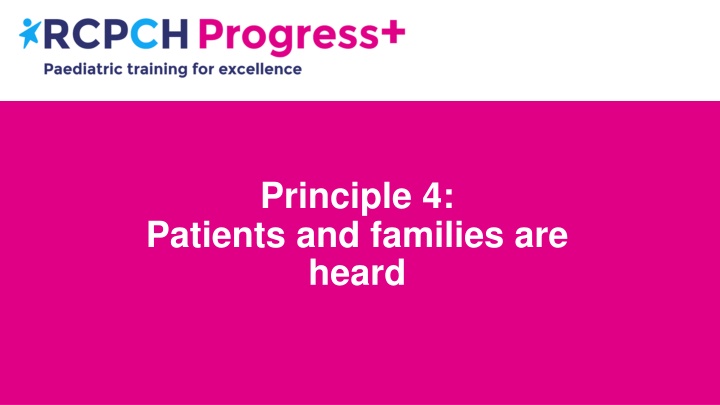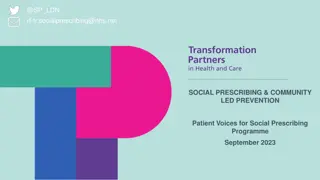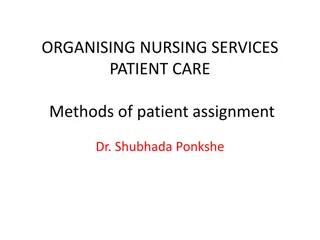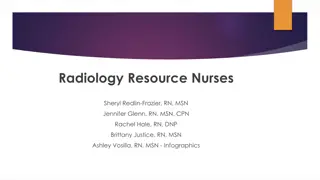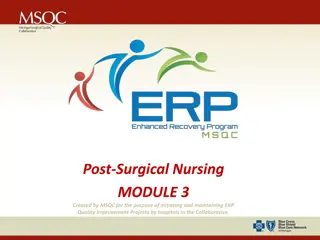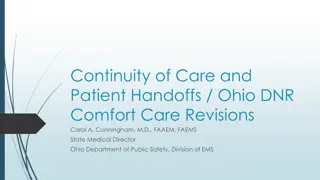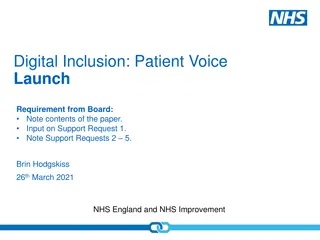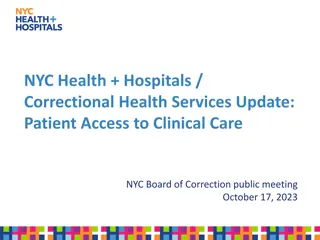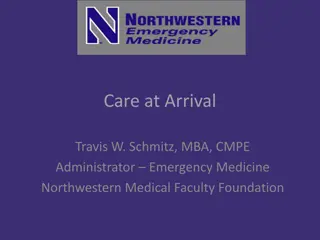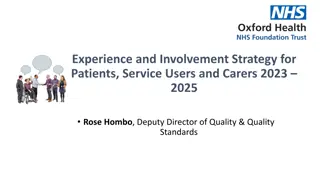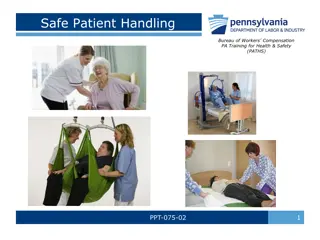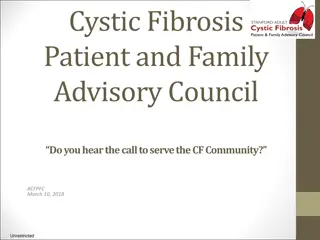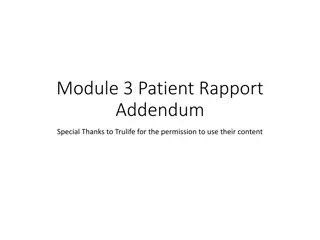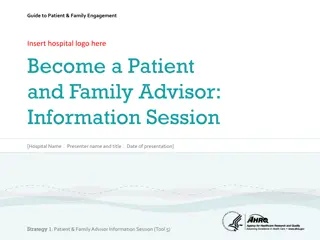Ensuring Patient and Family Voices Heard
Patients and families play a crucial role in healthcare, and it's vital to prioritize their voices in all aspects of care. This principle emphasizes the importance of increasing patient engagement, incorporating their wishes, and working collaboratively. By actively seeking feedback, involving them in decision-making processes, and providing support tailored to their unique needs, healthcare providers can create a more patient-centered approach that leads to better outcomes and experiences.
Download Presentation

Please find below an Image/Link to download the presentation.
The content on the website is provided AS IS for your information and personal use only. It may not be sold, licensed, or shared on other websites without obtaining consent from the author.If you encounter any issues during the download, it is possible that the publisher has removed the file from their server.
You are allowed to download the files provided on this website for personal or commercial use, subject to the condition that they are used lawfully. All files are the property of their respective owners.
The content on the website is provided AS IS for your information and personal use only. It may not be sold, licensed, or shared on other websites without obtaining consent from the author.
E N D
Presentation Transcript
Principle 4: Patients and families are heard
Principle 4: Patients and families are heard As Doctors and HCPS, it is our duty to ensure we increase patient engagement and voice in our work At times, especially with service pressures, winter pressures and training pressures, it can be easy to forget WHY we do what we do: Ensure patients and their families are heard in all aspects of their care Incorporating the wishes of CYP and their families and working in a collaborative manner is becoming an increasing priority for paediatricians. To learn more click here: https://paediatrics2040.rcpch.ac.uk/voice- matters/
Principle 4: Patients and families are heard We already know what they want: Health information which is more interactive and memorable Having annual checks for vulnerable groups and introduce health checks in secondary school All doctors to have a good understanding of how to support good mental health for CYP More education and awareness sessions on mental and physical health from a younger age Have more opportunities for parents and patients to talk to each other and get advice/support from people with lived experiences of conditions tips to prevent crisis
Principle 4: Patients and families are heard Every child, young person and parent/carer is unique and may need different support, materials or preferences to confidently share their voice We need to ensure that we are asking the right questions to the right people, in the right place at the right time and using the right materials? Are we seeking feedback from CYP/Families after they use our services? At ward round? At the end of the consultation? Do we involve them when planning clinical pathways? QiP? Audit? Are we reaching all service users with all abilities and needs?
Patients and Families are Heard The examples shown are not exhaustive but are a starting point to show how we can involve CYP and their families in our services, clinical practice and patient pathways QuIP In developing clinical guidelines and pathways Audit #voicematters Parent Support Groups CYP Trainees can also reflect on experiences and how working with CYP has influenced their practice Engagement Team CYP & Involve in Committees & Meetings Parent/ Carer Surveys
Translating patient voice into clinical practice Trainees should identify opportunities to undertake projects or develop guidelines using the patient voice Trainers should identify examples of how CYP voices have influenced existing pathways, service provision and service development. Best Practice from local trusts and national project should be highlighted and enabled by supportive trainers See other projects for inspiration: https://qicentral.rcpch.ac.uk/resources/patient-centred-care/
Find out more on the RCPCH website www.rcpch.ac.uk/progressplus
